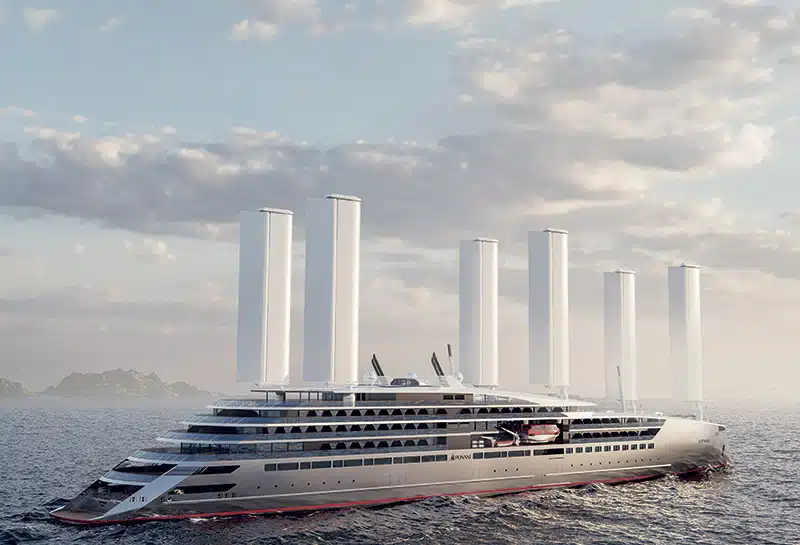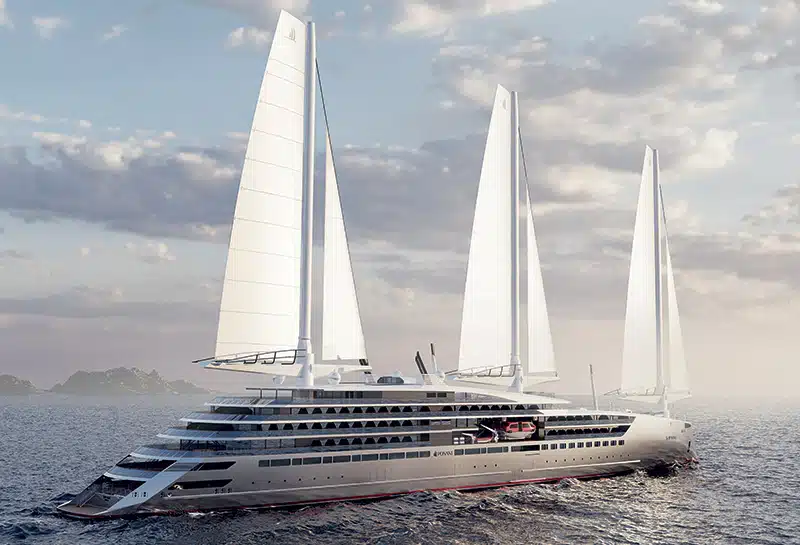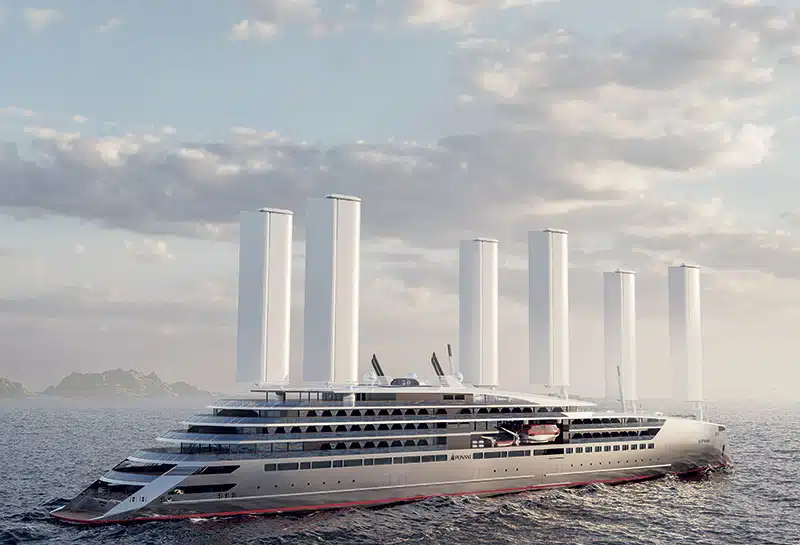The post “By 2030, our future ship aims to have zero greenhouse gas emissions”: Gastinel appeared first on TD (Travel Daily Media) Travel Daily.


Hervé Gastinel, CEO of PONANT shares that by 2030, their future ship aims to have zero greenhouse gas emissions when sailing, manoeuvring, in port or at anchor. Her carbon footprint will be reduced throughout her life cycle.
Continuing to pioneer in maritime innovation, PONANT has committed to a uniquely designed transoceanic ship, supporting the evolution towards carbon neutrality. The company’s R&D team have come up with a pioneering concept that combines six groundbreaking technologies, that will redefine future navigation. The sailing ship, which will be ready by 2030, aims to be a catalyst for new energy solutions for PONANT and the broader industry. Whilst PONANT has chosen to join forces once again with naval architecture Stirling Design International, discussions are ongoing to select the shipyard for the delivery of this vastly evolved and cutting-edge vessel.
Hervé Gastinel, CEO of PONANT said: “By 2030, our future ship aims to have zero greenhouse gas emissions when sailing, manoeuvring, in port or at anchor. Her carbon footprint will be reduced throughout her life cycle. Renewable energy supplied by the wind and sun will be combined with low-carbon non-fossil energy associated with fuel cells.”
A technological revolution that puts sustainability at the heart of the project. The next generation of eco-designed PONANT ships will be a key milestone in achieving our net zero emissions ambition. With around a hundred staterooms and a length overall of 181m, PONANT’s future sailing ship is paving the way to a new era for the maritime industry. In line with new European and international regulations on greenhouse gas emissions, PONANT is adopting an unprecedented eco-design approach. This is a major advancement in shipbuilding with selection of equipment and materials based on an analysis of their life cycle through to the recycling of waste.”

PONANT heads up project with strong replicability potential to speed up decarbonisation of the shipbuilding industry. Swap2Zero aims for zero CO2 eq* emissions (well to wheel CO₂ equivalent emissions; takes into account CO₂, Methane, N₂0) in operation, with one month autonomy by being the first to combine six major decarbonisation technology building blocks:
- A sail power system and hull providing an average of 50% of the propulsion energy using the force of the wind;
- A surface area totalling over 1,000m² of photovoltaic panels, with new generation organic solar eco-designed devices integrated into the structures and sails;
- A low temperature fuel cell operating on liquid hydrogen for propulsion, with the water and heat produced being recycled;
- A high temperature fuel cell to meet the ship’s hotel load requirements, with the heat emitted being recovered and used to produce hot water;
- On-board carbon capture technology, coupled with the high temperature fuel cell;
- An innovative bespoke energy management system to control and distribute power without any generators being in service.
The Swap2Zero ship is also part of the PONANT SCIENCE programme in line with our commitment to scientists. She will host researchers involved in decarbonisation technologies, a major challenge in the battle to control global warming.
“PONANT is a company of sailors focused on exploration and innovation, and it is this pioneering spirit that is inspiring the whole Swap2Zero programme. This is much more than a new ship. We want to offer a new mode of navigation and actively contribute to decarbonisation of the maritime sector. Our inhouse R&D team has brought together the best specialists in shipbuilding and renewable energy to imagine and develop an energy model that aims at zero emissions. With Swap2Zero, we are building a French technological showcase to convince other stakeholders to commit to carbon neutral navigation,” concluded Hervé Gastinel, CEO of PONANT.
The post “By 2030, our future ship aims to have zero greenhouse gas emissions”: Gastinel appeared first on Travel Daily.
Source link

